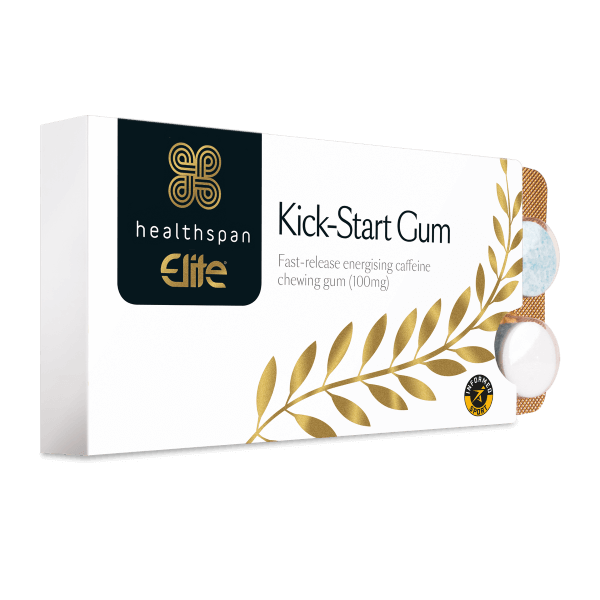Could caffeine be your new go-to training aid? Lucy Gornall investigates, with expert advice from sports nutritionist Rob Hobson.
🕒 4 min read
When you think of caffeine, you probably think of your morning coffee. Whether it's a frothy cappuccino, a single espresso or a milky Americano, many of us turn to caffeine for that much-needed wake-up.
In fact, research shows that approximately 90% of adults in Western countries consume caffeine regularly.
It's not just something to get you out of the house in the morning, though. Caffeine can also be a useful training aid, with benefits for anyone who exercises or takes part in sport.
Sports Nutritionist Rob Hobson explains that caffeine is a well-researched performance enhancer – otherwise known as an ergogenic aid.
"It's been shown to improve performance in lots of different exercises, especially endurance and high intensity," says Hobson.
The benefits of caffeine
If you're hoping to boost your endurance, then caffeine could offer the support you need.
"Studies show that caffeine can enhance endurance by increasing the time to exhaustion, particularly in sports like cycling and running," says Hobson.
Essentially, caffeine reduces the perception of effort, making exercise seem easier to perform so you can train or compete for longer.

Caffeine can help you train or compete for longer, increase performance in high-intensity exercise and improve focus in fast-paced team sports.
In fact, research published in the Journal of the International Society of Sports Nutrition (ISSN) has found that caffeine improves physical performance in both trained and untrained individuals, so no matter where you are in your fitness journey, caffeine could help.
Increased muscle output
The research also suggests that caffeine can enhance performance in high-intensity, short-duration exercises, such as weightlifting or sprinting, by increasing muscle power output.
Better focus
As well as the benefits that caffeine offers for actual performance, it's also great to help maintain focus.
"Caffeine stimulates the central nervous system, which means improved mental focus, alertness and concentration," explains Hobson.
This is particularly useful in sports that require sustained attention such as tennis, road cycling, football and basketball.
"These may involve changing game tactics and defence strategies over the course of a fast-paced match," says Hobson.
Overcomes tiredness
Bad night's sleep? Research has also found that caffeine may 'improve cognitive and physical performance in some individuals under conditions of sleep deprivation', making it a useful aid when you're exercising on minimal shut-eye.
For a quick caffeine hit try Healthspan Kick−Start Caffeine Gum, which contains 100 mg of fast-release caffeine per gum.

Kick-Start Caffeine Gum
Quick-release energy boost
- 100mg caffeine per mint-flavoured gum
- 85% absorbed in 10-15 minutes
- Increases mental alertness
What dose is best?
To reap the performance-enhancing benefits of caffeine, the ISSN recommends approximately 3 to 6 milligrams (mg) per kilogram of bodyweight, taken 30 to 60 minutes before exercise.
"For instance, someone weighing 70 kg would require between 210 and 420 mg of caffeine," says Hobson.
For context, a mug of 240 ml of brewed coffee typically contains around 95 mg of caffeine, depending on the brewing method and type of coffee bean.
"Caffeine typically reaches peak blood concentrations within this 30-to-60-minute window. If you're competing, you may want to time this to kick in at the start of the race or at a point in the race when you think it may be of most benefit."
Hobson adds that if you're just looking for an initial kick to help you in the gym or on a long cycle ride or run, drinking a coffee an hour before is probably fine. But if you're looking for a caffeine boost as you're cycling, running or exercising, you might want to consider a caffeine supplement instead. These typically come in pills, capsules or powders.
"These forms provide a consistent caffeine dose and allow users to tailor their intake to meet the desired ergogenic range. If you're competing professionally you would need to check the supplements are Informed Sport-approved," says Hobson.
Potential side-effects of caffeine
Caffeine has many benefits, but you should be aware of some potential drawbacks.
Taking too much caffeine could lead to anxiety, jitters, an increased heart rate, gastrointestinal distress and disrupted sleep, and these effects are likely to be more prominent in those with a higher caffeine sensitivity. Because of this, it's best to stick to the recommended dosage.
Hobson adds: "If you regularly drink caffeinated drinks then you can build up a tolerance, reducing its effectiveness as a performance-enhancing aid. Anyone who uses caffeine frequently may need to take short breaks to maintain its efficacy."
If you suffer from a specific health condition such as a heart issue, high blood pressure, or anxiety disorder, you should also be cautious, as caffeine can worsen these conditions.
"Pregnant or breastfeeding women should also limit their caffeine intake to below 200 to 300 mg daily during these periods," adds Hobson.
Ultimately, caffeine is scientifically backed to help support exercise performance, but do consider the potential side effects. It can often be a case of trial and error until you find the best caffeine supplement and dose for you.








